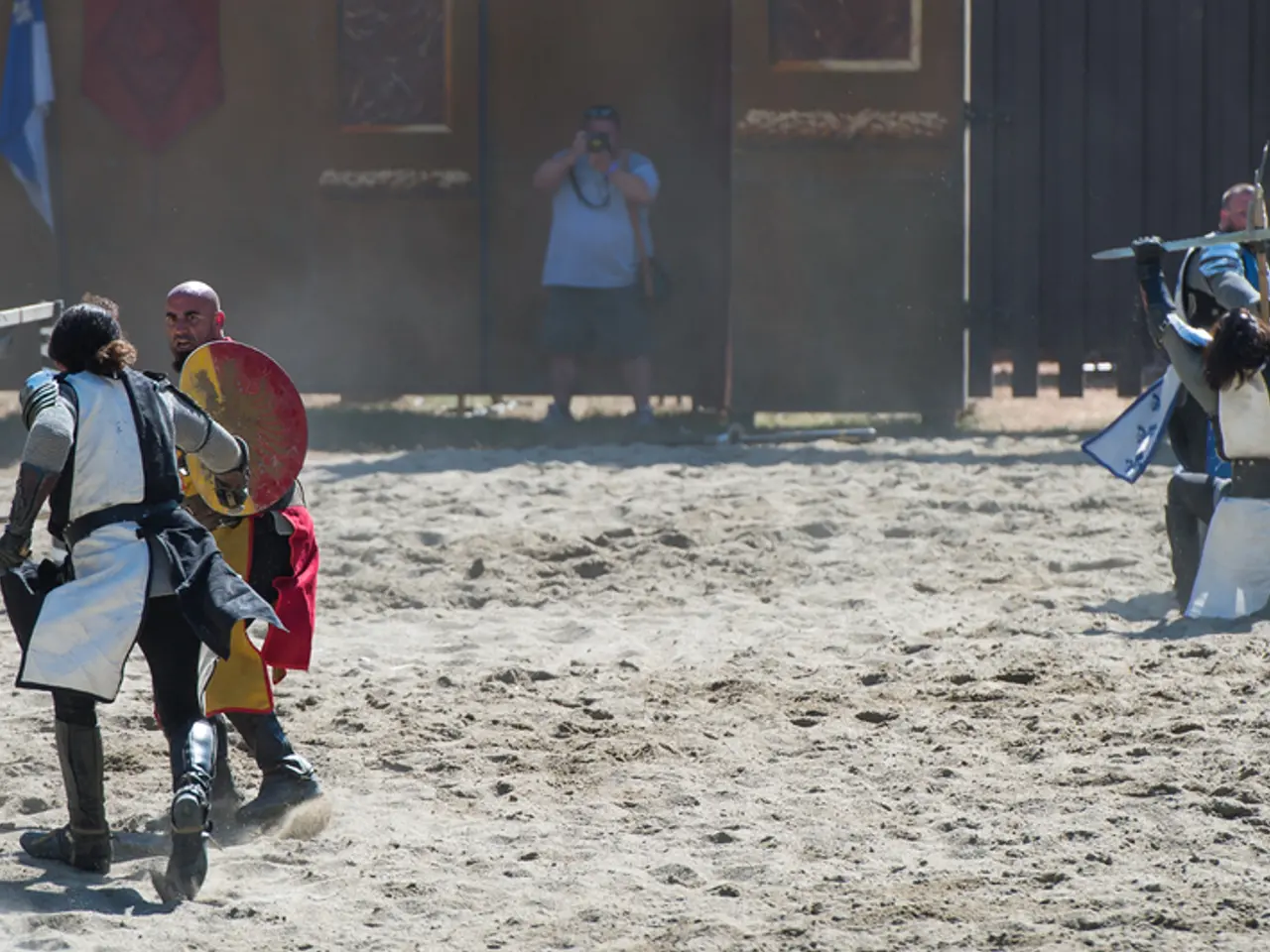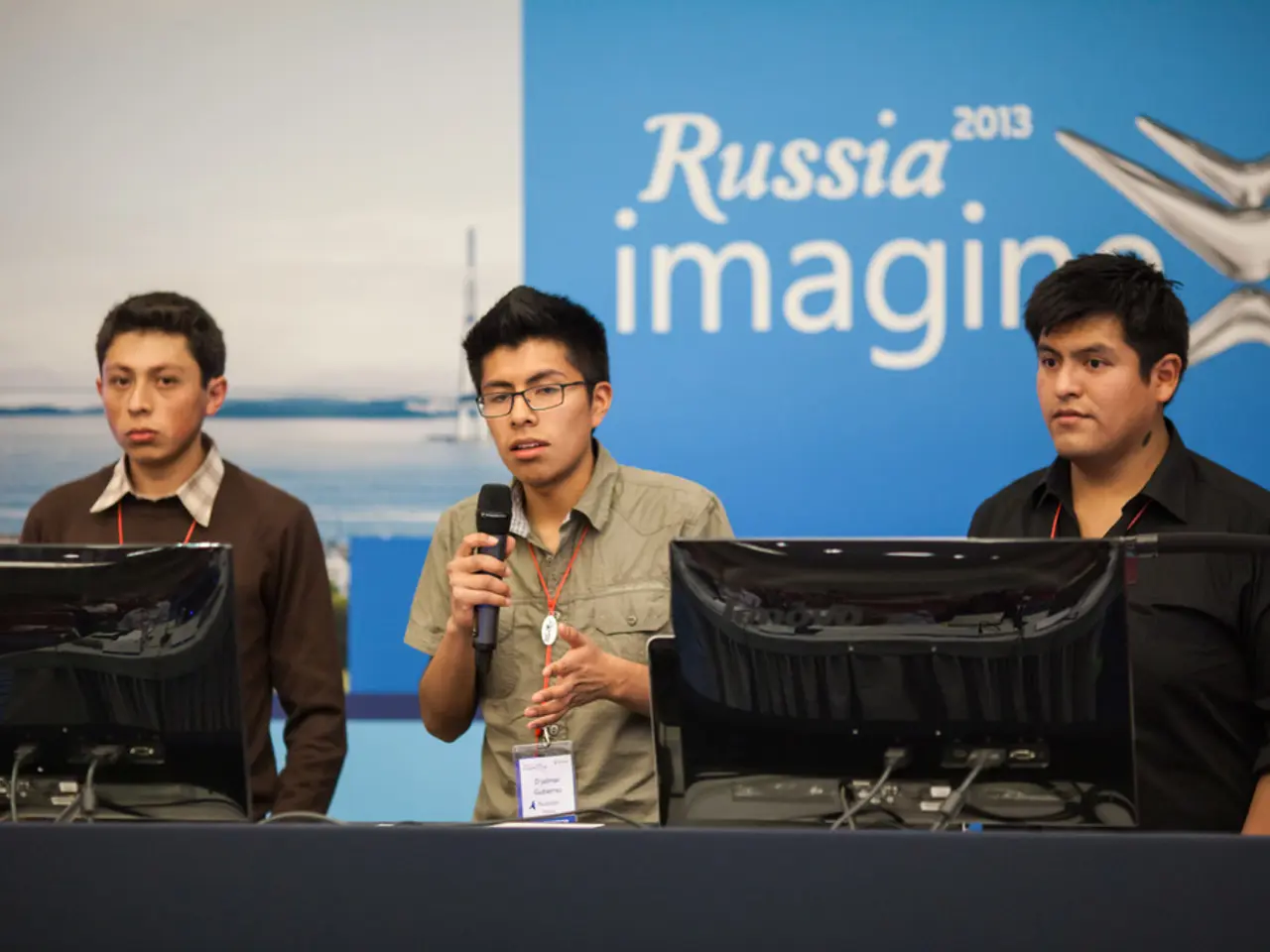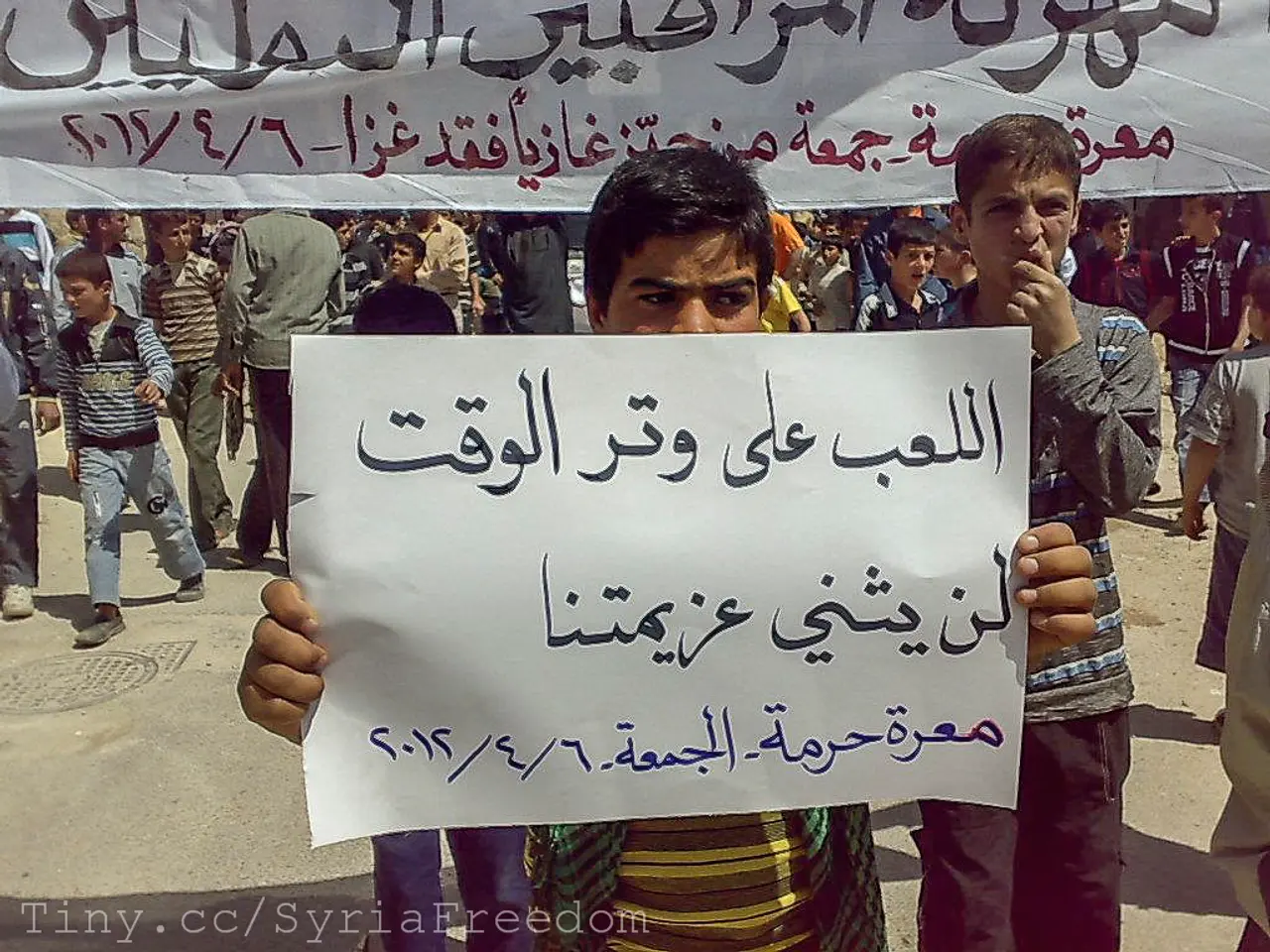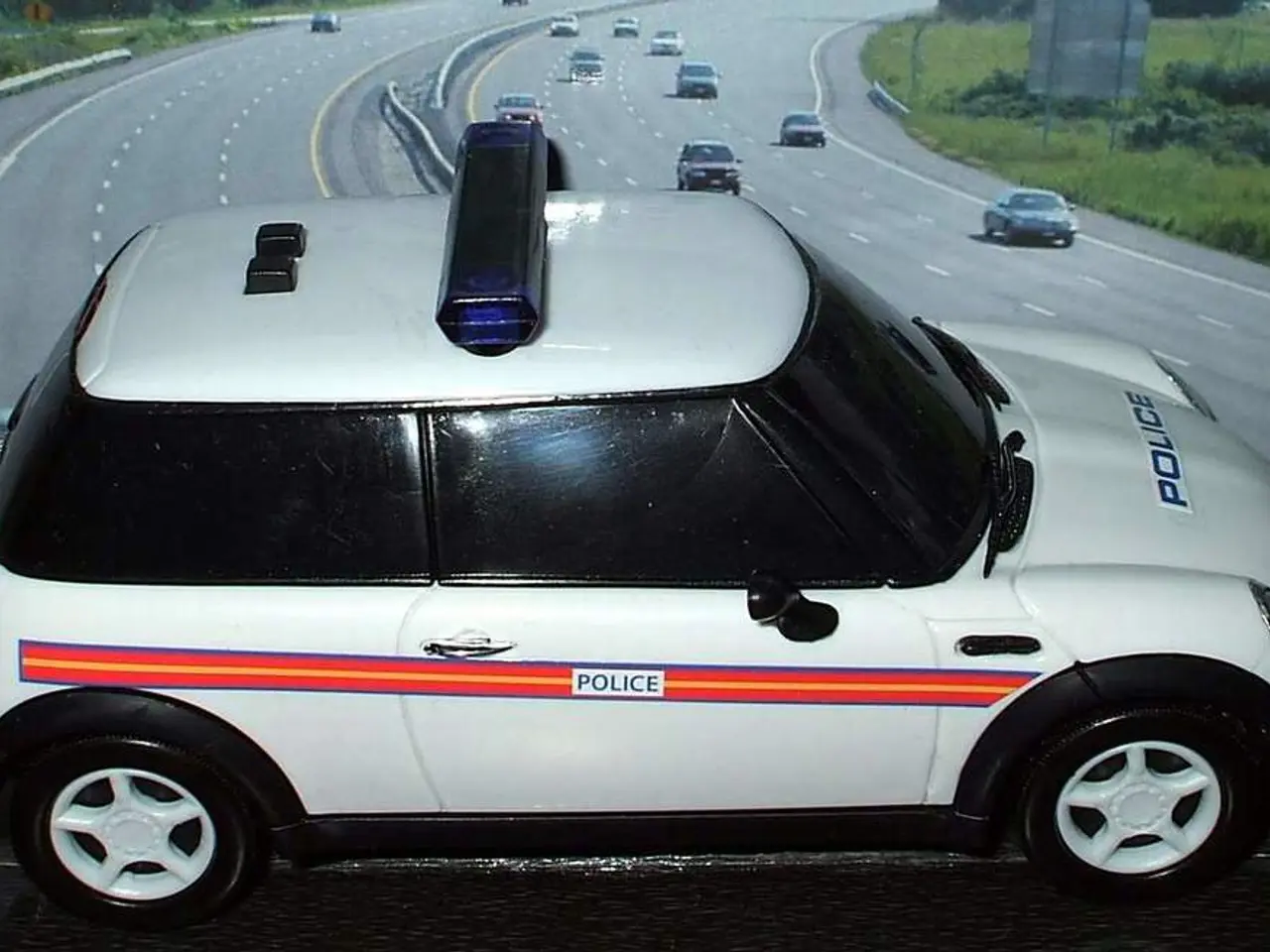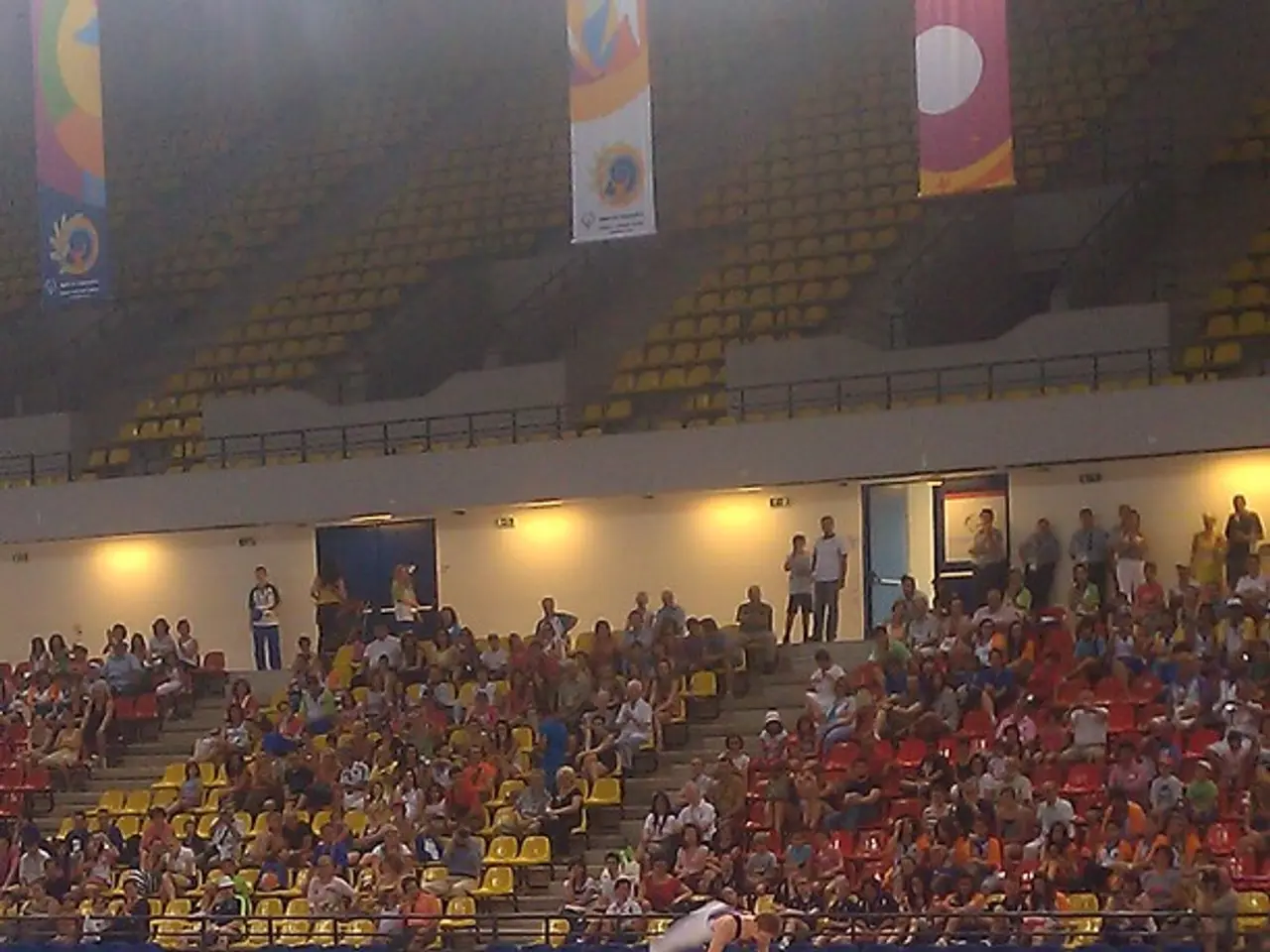Hamas faces international pressure as Israel demands action in Gaza
In the ongoing Middle Eastern crisis, several significant developments have unfolded.
Hezbollah, the Lebanese militia backed by Iran, has expressed openness to discussions about reducing its weapons arsenal. However, the group has refused to commit to a specific timeline, citing ongoing attacks in Lebanon by Israel and the presence of Israeli troops as major obstacles [1].
Meanwhile, the Israeli-Palestinian conflict continues to intensify, with an estimated 20 hostages still held by Hamas in Gaza [1]. The potential Israeli takeover of the Gaza Strip is a matter of concern, as it could lead to massive displacement, increased killing, extreme suffering, widespread destruction, and atrocity crimes among Palestinian civilians, according to the UN High Commissioner for Human Rights [1]. The UN also calls for the immediate and unconditional release of all hostages by Palestinian armed groups, emphasizing the urgency of protecting civilians amid the conflict escalation [1].
The Israeli plan for the Gaza Strip is a subject of debate, with the Israeli security cabinet set to meet for consultations this week [1]. However, there are significant concerns within the military leadership about expanding the fighting and fully occupying the Gaza Strip, as it could take years [1]. Opposition leader Jair Lapid has warned the government against fully occupying Gaza, stating that it could result in the death of all hostages [1].
The UN has condemned the treatment of hostages and reiterated the demand for their unconditional release. Diplomats have also called on Israel to end the war and the blockade of Gaza [1]. According to UN figures, people in Gaza are facing famine [1].
In a separate development, the debate over the disarmament of the Hezbollah militia is heating up in Lebanon [1]. While Netanyahu is determined to free the hostages and eliminate Hamas, there are reports suggesting that he is pushing for a full takeover of the Gaza Strip, despite military leadership's objections [1].
The UN representative, Miroslav Jenca, has highlighted the catastrophic situation of over two million people in the Gaza Strip due to the blockade by Israeli forces [1]. He also warned that such a step could further endanger the lives of the remaining hostages in Gaza [1].
Months of indirect negotiations between Israel and Hamas over a deal for a ceasefire and the release of hostages have so far been unsuccessful [1]. Hamas has been accused of using torture and hunger as propaganda tools [1].
The Israeli Foreign Minister, Gideon Saar, has stated that Hamas bears responsibility for starting and continuing the war in Israel [1]. While most representatives in the UN Security Council have expressed sympathy for the Israeli hostages, they have also criticized Israel's war conduct, with tens of thousands of civilians killed [1].
In a recent development, Israeli Prime Minister Benjamin Netanyahu has not yet commented publicly on the plans, but reportedly still leans towards taking the coastal strip [1]. However, according to Israeli media, Netanyahu consulted with army chief Eyal Zamir about further action, but the full takeover of the Gaza Strip was not among the options presented by the chief of staff [1].
[1] References: UN High Commissioner for Human Rights, UN representatives, Israeli media, Israeli Foreign Minister Gideon Saar, and Opposition leader Jair Lapid.
- The ongoing Israeli-Palestinian conflict and the unfolding developments in the Middle Eastern crisis, including the debate over Hezbollah's disarmament and the potential Israeli takeover of the Gaza Strip, are topics of significant concern in politics and general news.
- In the context of the Middle Eastern crisis, discussions about disarming Hezbollah and the potential Israeli takeover of the Gaza Strip are being debated in Lebanese politics, while the Israeli-Palestinian conflict continues to intensify, with ongoing war-and-conflicts and the issue of hostages held by Hamas.
